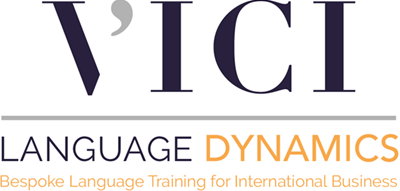Following up my repost of a brilliant article touching on the benefits of language training in IT support functions, I wanted to write a post deep-diving into the topic. To get a first-hand account of what an invaluable asset multi-lingual helpdesk staff can be, I spoke with David Thomas; David is fluent in French, Hungarian and Spanish and has had a multi-faceted career, with a wealth of experience to draw on – we caught up to discuss his thoughts.
David, tell us a bit about your background and current role.
For much of my career I was predominantly involved in language training, from TEFL training in France and Finland to founding a business language training centre in Budapest. On my return to the UK I was initially involved in contact centre phone and management roles, before moving into helpdesk support for the past 6 years, currently working with retail and hospitality outlets throughout Europe and America. In addition to dealing with issues at store level I also liaise with regional and country managers to help resolve global issues.
What opportunities would you say employing a multi-lingual staff affords IT support providers?
From my personal experience, many retail and hospitality businesses are international. If you can say to your UK contact in a company working across several European territories “we can provide the same level of service we offer in the UK to clients in France and Spain” you have a great cross-sell opportunity. And it means you can counter the “our staff don’t speak English” argument with the reassurance that you can field calls in multiple languages. Furthermore, being able to resolve your client’s headache of needing to work with a different service provider in each country is always an immediate advantage!
Can you give us a first-hand example of how multi-lingual skills have resolved a long-standing client relation issue?
I was working with a UK fashion retailer in the UK and across several European countries and we noticed that the non-UK offices weren’t calling in as much as their UK counterparts – consequently issues were stacking up. We realized these branches were feeling isolated: the stressful situation of experiencing and needing to report a technology issue was being exacerbated by what they perceived as a “foreign helpdesk” experience, which made them feel remote and detached.
To ameliorate this problem, we made a point of personally calling every store once a month, in their own language, regardless of whether they had logged issues or not. In doing so we often picked up a number of unreported issues, but more importantly by making the conversations feel more local it opened the relationship up, instilled trust, and removed one of their stressors.
Do you think companies realize the benefits of multi-lingualism?
The business world has evolved and language skills are much more top of mind for employers – but in wider society there is still a preconception that “everybody speaks English” which is absolutely not the case! And even if they do, it’s not necessarily to a sufficient level to be able to hold an IT conversation. So I think there’s still some way to go.
One of the challenges we face in the language training industry is that some employers feel that staff turnover means it isn’t prudent to spend money language training for their employees. What would your response to this be?
One of the main ‘hidden benefits” is that it can actually help in terms of improving staff retention. By upskilling your staff, potentially giving them a qualification and a professional background to their knowledge, you are investing in them which grows confidence and staff loyalty. In a company employing a mixture of UK and EU nationals who speak many languages, being able to say “you bring your mother tongue to the mix and we will invest in your English skills” can be a very motivating factor.
What level of foreign language do you think helpdesk employees need to have before it starts making a difference?
I’d argue that often, even a simple conversational level of language is enough to open a dialogue and put the caller at ease, which is half the battle. You’re frequently talking to people who aren’t IT experts, so they don’t have the technical terminology themselves.
One thing I’ve observed is that technical jargon is often very similar across languages – the word ‘router’ is recognizable in English, French and Spanish; and “kábel” is “cable” in Hungarian. Modern words that have developed internationally at the same time often have centrally recognizable etymology, which makes it easier for those speaking multiple languages to pick up the vocabulary.
What do you think is next for multi-lingual support functions – are you seeing any trends?
I’d like to say that there’s a growing awareness. We’re definitely seeing it in the IT sector; joining the dots between different countries, normalizing and harmonizing operations between territories and aiming to give the same experience and level of service across borders – even tailoring to cultural specifics. Having speakers of different languages brings a cross-cultural awareness that is an asset to any international business.
Thank you so much for your time! Is there anything else you’d like to say before we wrap up?
One message I’d like to give to those that have language skills and want to use them in the workplace – keep your languages fresh! Undertake a language programme, watch TV in your target language, find conversation classes… do whatever it takes to keep your skills up to date!
There’s no question that a helpdesk staff able to provide a level of multi-lingual support to customers can be a huge asset. The question is, is your company capitalising on this opportunity – and if not, why not?
At VICI Language Dynamics we provide tailored language programmes to teams of all sizes across a range of industries – our solutions range from one-to-one packages to entire workforce training options. And because one size does not fit all, we make sure we really understand you and your business requirements before putting together a proposal.
If you want to talk more about the benefits of staff language training, or discuss how VICI can help with your language training strategy, don’t hesitate to call 01635 813 273 or email help@vicilanguagedynamics.com.

